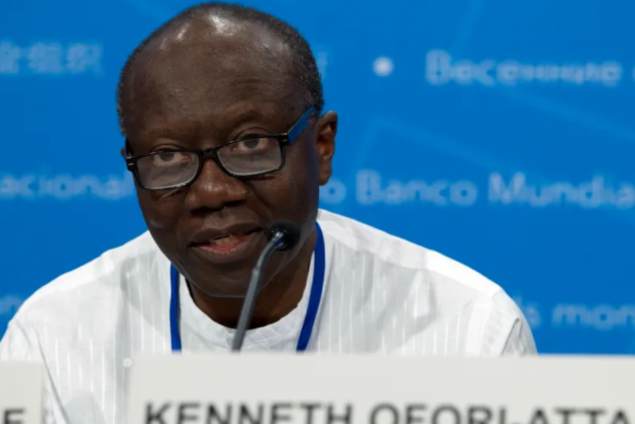Data from the Bank of Ghana indicates that Ghana’s public debt stock shot up by ¢96.1 billion in the first four months of 2023 to ¢569.3 billion in April 2023, approximately 71.1% of Gross Domestic Product (GDP).
This is equivalent to $52 billion.
The increase in the debt stock was largely due to the depreciation of the cedi within the period and to some extent an increase in domestic debt by ¢15.6 billion in the first four months of this year.
The debt stock stood at ¢473.2 billion in December 2022, approximately 77.5% of GDP.
According to the July 2023 Summary of Economic and Financial Data, Ghana’s debt in cedi terms rose to ¢547.8 billion ($50.7 billion) at the end of January 2023 and subsequently to ¢564.1 billion ($51.2 billion) and ¢569.5 billion ($51.7 billion) in February 2023 and March 2023 respectively.
The data from the Central Bank also disclosed that the external component of the total public debt stood at $29.3 billion (¢321.4 billion) in April 2023, higher than the $29.0 billion (¢240.9 billion) in December 2022.
In terms of the domestic debt, it stood at ¢247.9 billion at the end of April 2023, about 30.9% of GDP. This is compared with ¢232.3 billion in December 2022, approximately 38.1% of GDP.
The report again failed to provide data for the financial sector resolution debt and other liabilities such as the energy sector debt.
Nominal GDP surge ¢262.9bn in March 2023
Meanwhile, Ghana’s nominal GDP rose by ¢190.7 billion in December 2022 to ¢800.9 billion in April 2023.
The significant rise in Ghana’s nominal GDP can be largely attributed to the elevated prices of goods and services produced within the country. These price increases, in turn, were a result of persistently high inflation rates.
Fiscal deficit to GDP stood at 0.8% in March 2023
The government’s fiscal deficit to GDP stood at 1.8% in April 2023, as against 8.3% of GDP in December 2022.
The primary balance stood at 0.7% of GDP in April 2023
Ghana suspended payment of loans to its external creditors in December 2022, as the country struggled to rebalance the economy.
It subsequently restructured some domestic debt in February 2023.
This paved the way for the Executive Board of the International Monetary Fund to approve a $3 billion Extended Credit Facility (ECF) programme.
In June 2023, the country reached an agreement with banks to restructure ¢15 billion ($1.36 billion) of locally issued U.S. dollar bonds and cocoa bills.
It is now left for the nation to reach an agreement with its external creditors before restructuring the external debt.
Latest Stories
-
“If you cannot marry at 16? Why have sex at 16?” – Justice Adjei punches holes in Ghana’s laws
6 minutes -
Criminalise falsehoods online just like offline offences – Sir Dennis Adjei backs misinformation law
7 minutes -
Rain‑soaked Accra turned electric as ‘3 Faces of Jeffrey Nortey’ sold out National Theatre
16 minutes -
Justice Dzamefe backs AI, virtual courts to tackle delays in justice delivery
17 minutes -
First National Bank Ghana receives $35m capital injection to accelerate growth, lending capacity
31 minutes -
2025 NCAA Champs: Rose Yeboah wins silver with season’s best jump
39 minutes -
AI alone cannot fix judicial system without integrity – Ansa-Asare
46 minutes -
ECL hosts second mentorship talk at Aburi SHS
49 minutes -
Don’t extend petroleum licenses of Tullow – IEA appeals to Gov’t
49 minutes -
KNUST researchers develop AI model to enhance breast cancer diagnosis
55 minutes -
Ken Ofori-Atta undergoes successful prostate cancer surgery – Wife discloses
58 minutes -
Chef Abbys represents Ghana at Cannes Lions 2025 for TikTok
60 minutes -
Expand legal education only after feasibility studies – Justice Adjei
1 hour -
Climate Talks draws massive crowd in Keta, spotlighting indigenous coastal resilience
1 hour -
Big Chef Junior S4 Celebrates Fathers with Gino Jollof Challenge
1 hour

